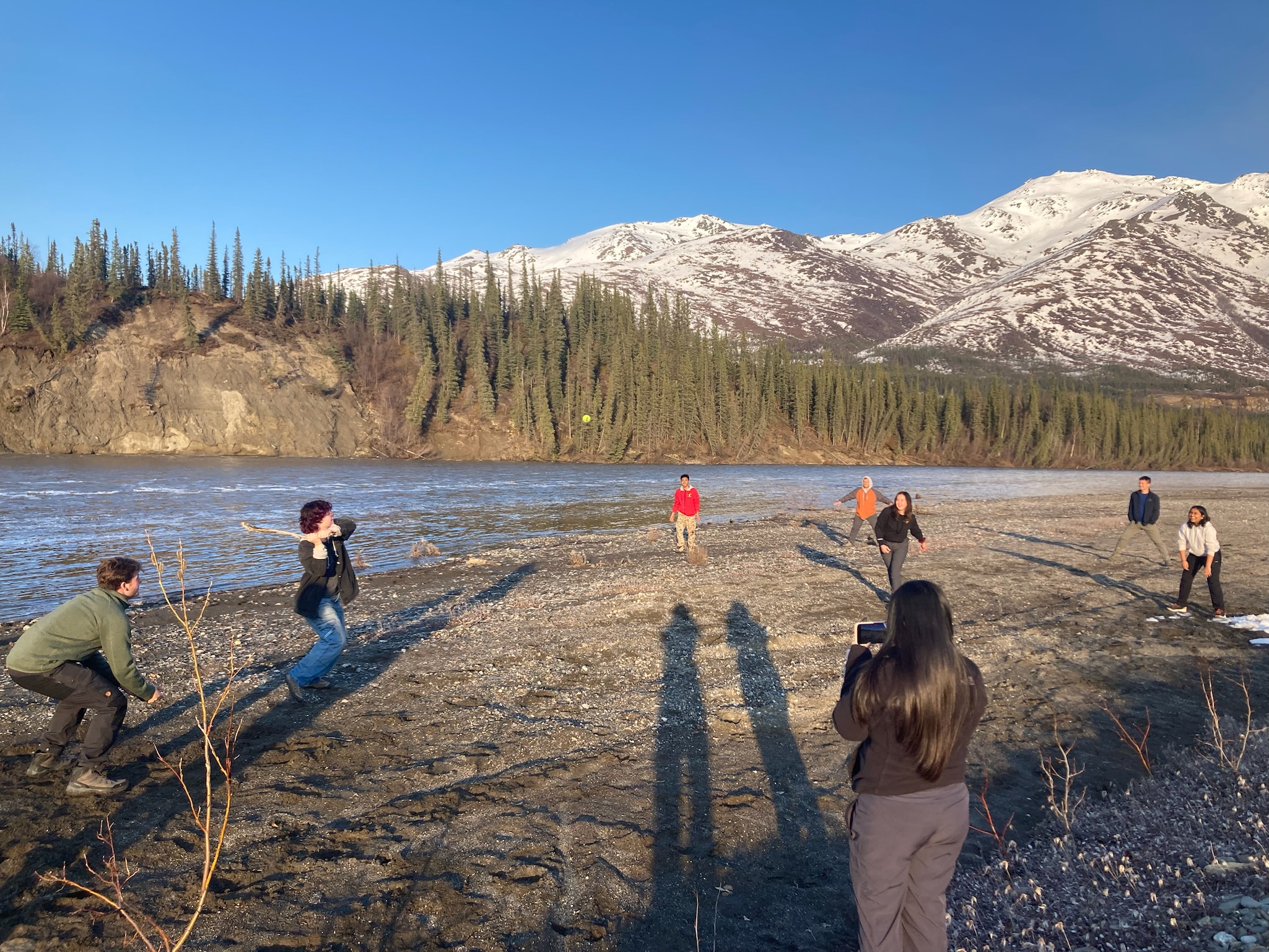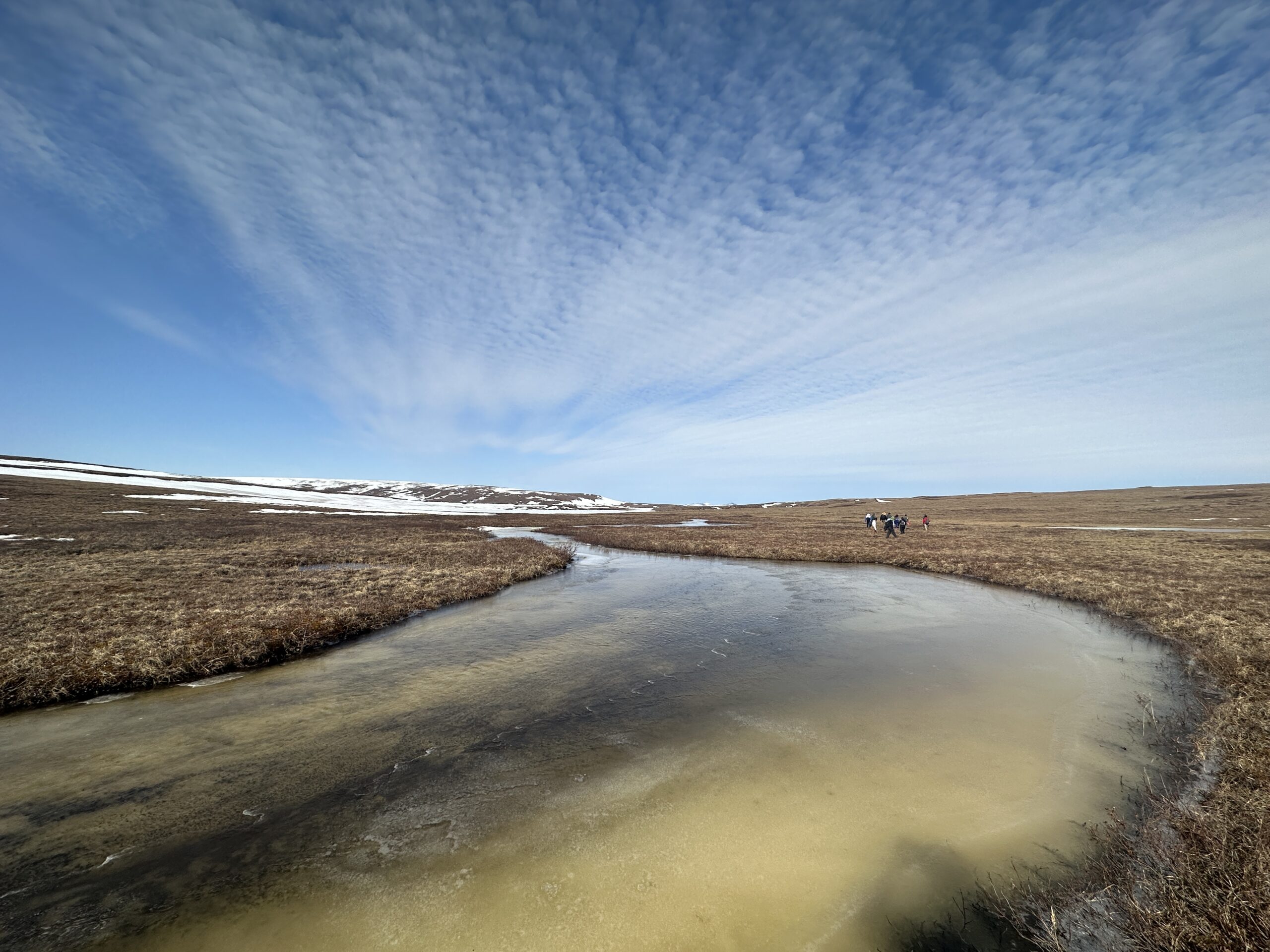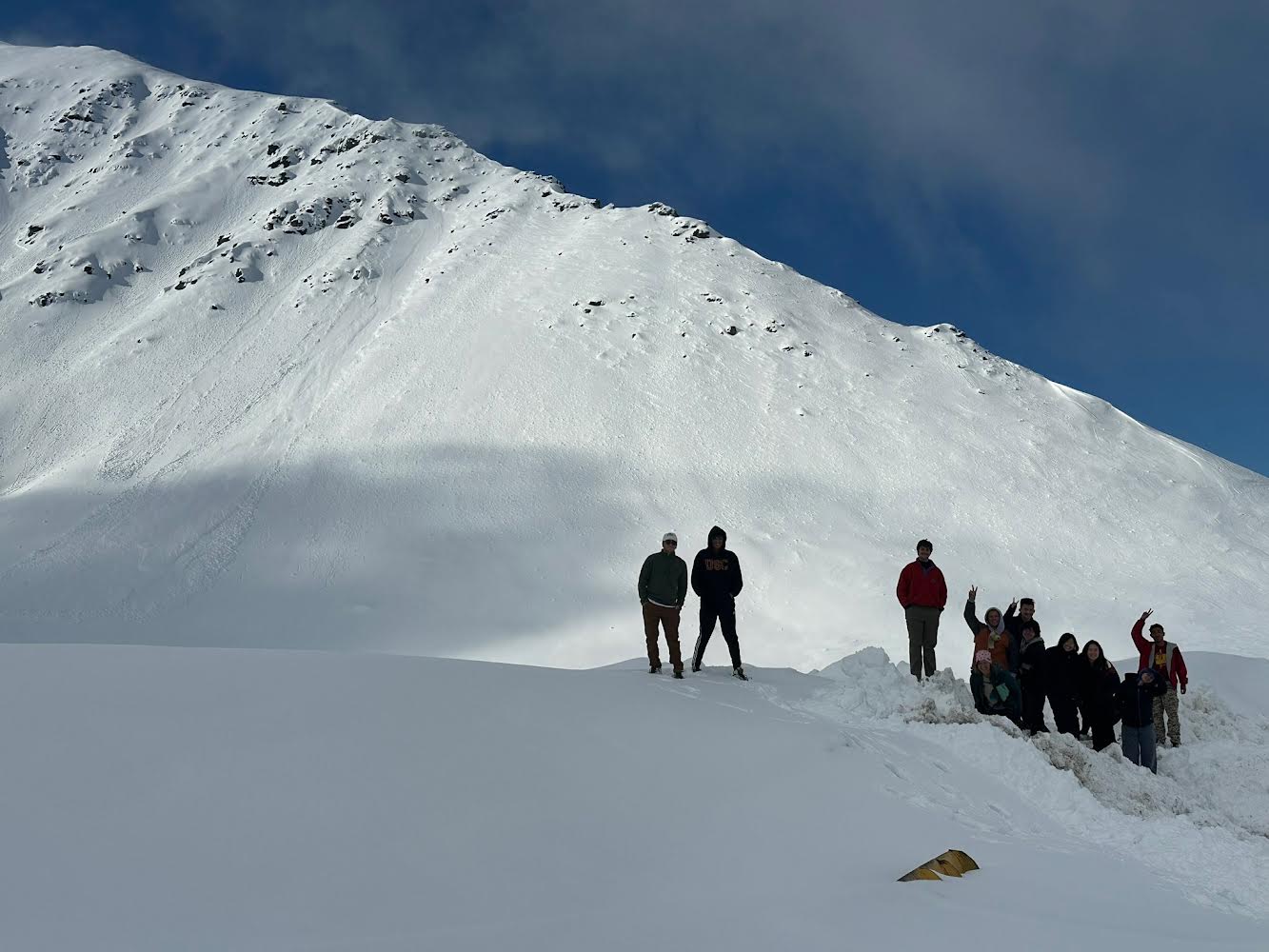The Power of Observation: Asking All the (Right) Questions in Alaska
Have you ever heard of Fairbanks, Alaska? Prior to this summer, I hadn’t.
It wasn’t until I spent three weeks in Alaska researching Arctic environmental change where I learned the utmost significance the state holds.
My name is Tammy Vu, an incoming senior earning a B.S. in environmental studies. Through the support of the Wrigley Institute for Environment and Sustainability Summer Award and the Evans Undergraduate Scholarship, I was able to go on a trip learning about permafrost, hydrochemistry, ecological succession, salmon habitat, and glaciers.
When I was first introduced to the opportunity of doing field work in Alaska, I was a bit hesitant. Initially, I thought, “There are an immense amount of locations that I could have traveled to, yet I’m presented with Alaska. What even is there?” However, after much thought, Alaska intrigued me. When else would I go there if not now? So, I decided to trust my gut and ended up spending three weeks traveling up and down Alaska in one of the most unique and fruitful experiences I have ever lived through.
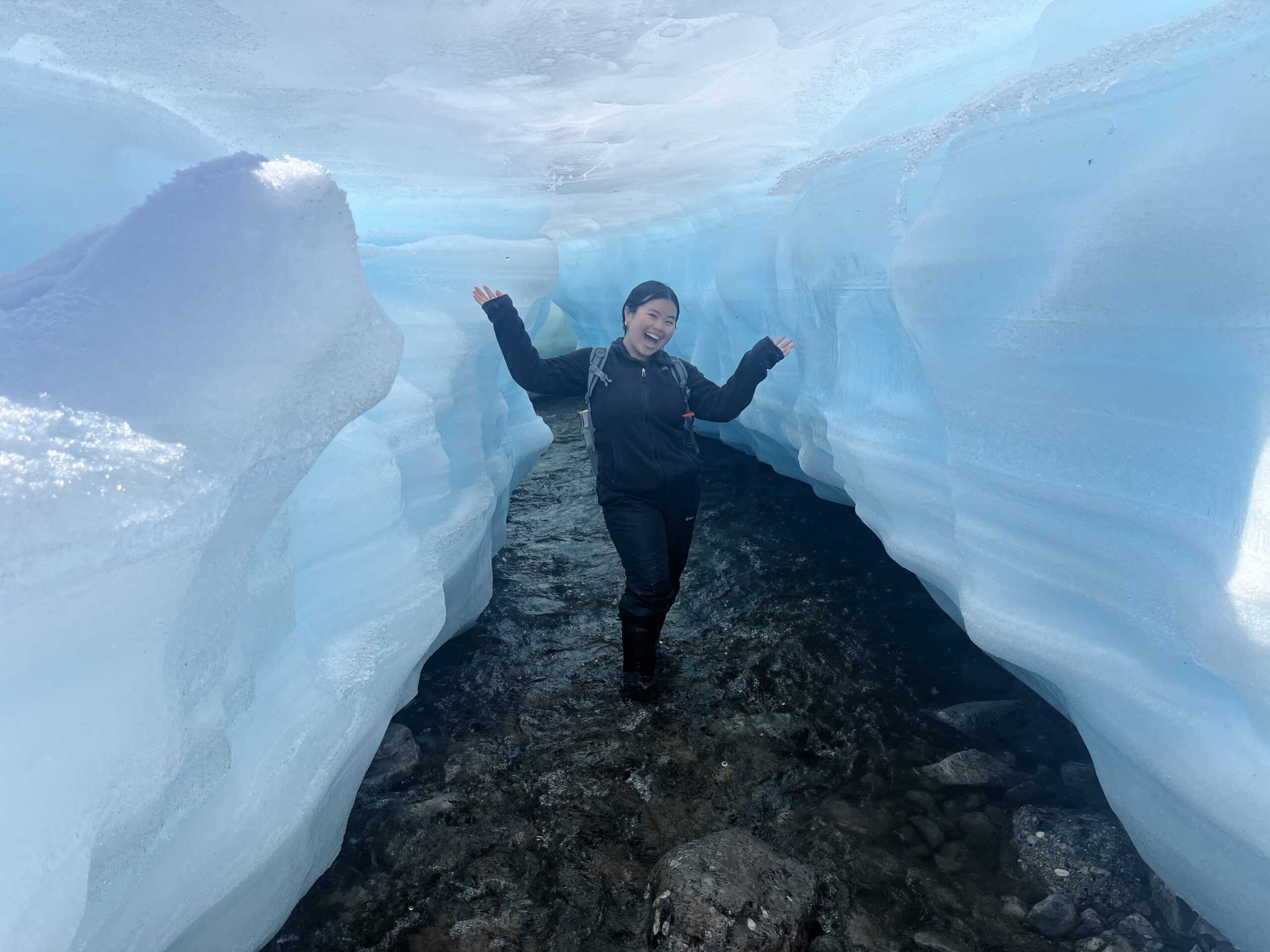
One of the main reasons I wanted to participate in this opportunity was because I struggled knowing how I wanted to proceed in a career of environmental studies. It is such a broad field that I wanted more experiential learning in order to see what was fit for me. Because of the time I spent in Alaska, I learned that there is the possibility that I could go into research and field work – an area that I had never seen myself in. It has only made me more excited to proceed in learning more about the intersectionality of earth sciences and environmental studies.
Three weeks doesn’t seem like the longest time, but I was shocked at how much I achieved within those weeks. I strengthened my lab and research skills and even got a taste for being in the field. I explored a permafrost tunnel, took many water samples, and even hiked a glacier (yes, hiked a glacier!). One of our final deliverables was to create a research proposal in answering a question that we had. Prior to this, I had never written a research proposal, so I am proud of how this experience gave me the opportunity to not only enhance my current skills but to also develop new ones. My proposal was titled, “Challenging the Chinook: Is Climate Change Affecting Salmon Habitats Near the Yukon River Basin?” I chose this subject as my proposal because I felt as if it encompassed most of what we had learned. Climate change plays a part in permafrost thaw, potentially releasing carbon and other compounds in its surroundings. If this reaches freshwaters, it has the chance to affect salmon populations, which in effect not only damages an important species but affects the Native tribes that rely on it. This is just one of the questions that came up during my time there. This trip furthered my critical thinking and highlighted the importance of asking questions.
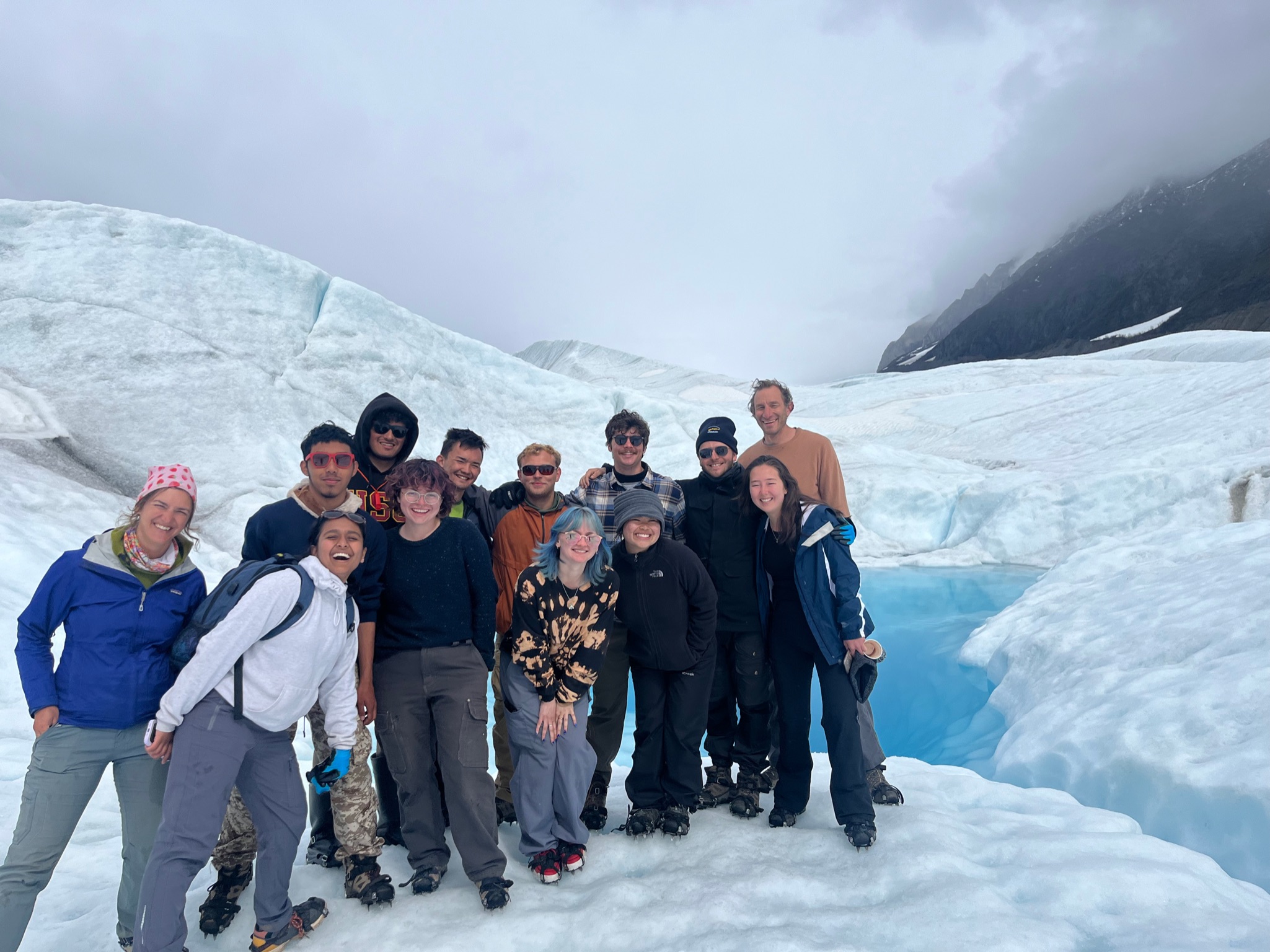
Aside from just working and studying, I also found ways to have a lot of fun living in remote settings. Some tasks that my peers and I participated in included walking on a frozen lake at midnight (mind you, the sun has not set yet at that hour), playing baseball with a stick and a tennis ball, practicing our lumberjack skills by chopping up wood, and even building a hut out of sticks and branches near the creek (which was so great that the organization we were staying with took a photo of us with it). Despite being an environmental studies major, I did not have much experience in the outdoors, so this trip was something I was not at all used to. However, I think it only heightened my love of the environment. I’m from the suburbs of Oklahoma, so I had never felt so connected to nature as I did then.
Overall, my time spent in Alaska contained three weeks of growing professionally, academically, and especially personally. I came out of the experience with a better understanding of earth sciences as well as a greater appreciation for the state. I am extremely grateful for the support that the Wrigley Institute Environmental Summer Award presented to me, so that I was able to maintain my focus on what truly mattered – the environment.
Tammy Vu is supported by the Evans Undergraduate Scholarship and SURF.

